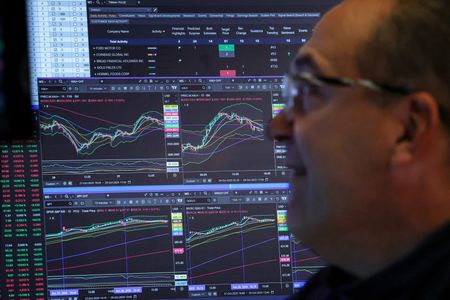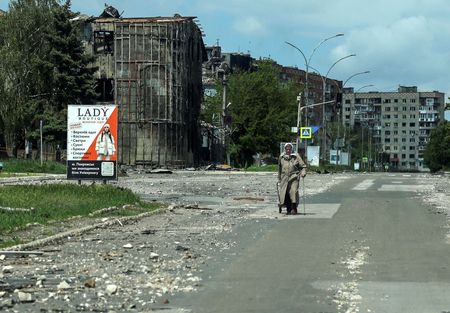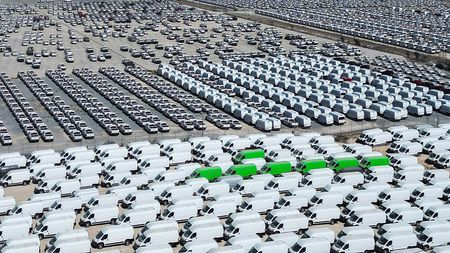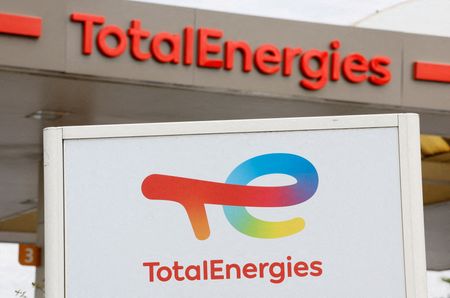LONDON (Reuters) -The finance chief of Shell, the world’s biggest LNG trader, said on Thursday that the exact timing of new LNG projects starting up around the world is in flux, which could create uncertainty about long-term supply.
The comments by Shell CFO Sinead Gorman suggest a note of caution as forecasts point to ample LNG supply in future, although she was not concerned about the European Union’s move this month to ban Russian liquefied natural gas (LNG) imports from January 2027, a year earlier than planned.
Some estimates see LNG supplies jumping many times over by then, led by U.S. and Qatari volumes. The International Energy Agency expects around 184 million metric tons per year of added global net supply of LNG by 2030.
“We understand why the (EU) proposals have been put in place, and frankly, we think the LNG market is resilient, regardless of what rules are in place as well. We believe the market will find a balance at the end of the day,” Gorman told reporters on a media call after Shell beat third-quarter earnings expectations.
New LNG projects are, however, seeing delays as they face rising construction costs, with U.S. LNG exporters seeking to renegotiate deals to cover higher costs, while some big LNG projects are being delayed due to security concerns, for example in Mozambique.
“Supply growth on the horizon and those timings are uncertain. You’ve seen those move quite a few times between years,” Gorman said.
Shell expects global demand for LNG to grow up 60% by 2040 and wants to boost its LNG sales by 4% to 5% a year throughout this decade. It sold more than 65 million metric tons last year.
Gorman said prices of $11-$12 per million British thermal units (MMBTU) during the third quarter had allowed Europe to restock gas inventories.
TotalEnergies, which has sold around 28 million metric tons of LNG this year so far, said on Thursday it expected European gas prices to stay at around $11 per MMTBU throughout the winter.
Talking about the short-term, the finance chief of Norway’s Equinor, which overtook Russia as Europe’s biggest gas supplier in 2022, said on Wednesday that Europe’s gas market was tighter than many might think this winter.
Equinor nevertheless lowered its long-term gas price outlook, to $8 per MMBTU in 2030 from around $9 per MMBTU, given its expectations for new volumes coming to market.
(Reporting by Shadia Nasralla; Editing by Susan Fenton)










